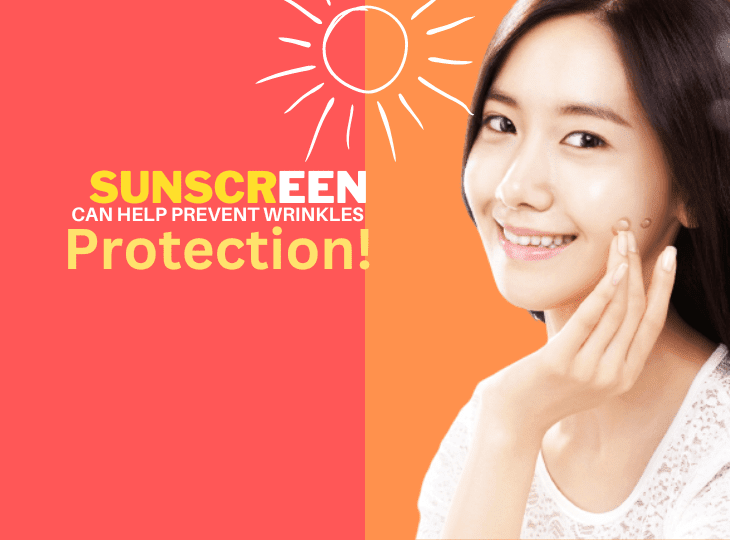As we age, our skin becomes more susceptible to damage from the sun’s harmful UV rays. Sun exposure can lead to wrinkles, age spots, and even skin cancer. But there is hope! Here we can learn about how sunscreen can help prevent wrinkles and exposure on aging skin by understanding the effects of sun exposure on aging skin and incorporating it into your daily skin care routine, you can help prevent wrinkles and protect your skin from further damage. In this blog post, we’ll explore the science behind sun aging, the best sunscreen options for mature skin, and tips for incorporating sunscreen into your daily routine.
- The effects of UV rays on skin aging
- The importance of sunscreen in preventing skin aging
- How to choose the right it for aging skin
- Incorporating it into your daily skincare routine
- Its compatibility with other anti-aging skincare products
The effects of UV rays on skin aging
The effects of UV rays on skin aging are well-documented. UV rays, both UVA and UVB, damage the skin’s DNA and accelerate the skin aging process. When our skin is exposed to UV rays, it triggers the production of free radicals which in turn breaks down collagen and elastin fibers, the proteins that give our skin its elasticity and firmness. effects of sun exposure on aging skin. This breakdown leads to wrinkles, fine lines, age spots, and uneven skin tone. Additionally, UV rays can also cause hyperpigmentation, which is the darkening of certain areas of the skin due to an overproduction of melanin. Sun exposure over time can also increase the risk of skin cancer. It is very important to understand the harmful effects of UV rays on our skin and take necessary precautions to protect ourselves from sun-damage.
The Importance of Sunscreen in Preventing Skin Aging
Sunscreen is one of the most effective ways to protect our skin from the damaging effects of UV rays and prevent skin aging. It works by creating a physical or chemical barrier on the skin that absorbs or reflects UV rays, preventing them from penetrating the skin and causing damage. It is recommended for daily use with a sun protection factor (SPF) of 30 or higher as it provides 97% protection from UVB rays. It’s important to note that not all are created equal, and some are better suited for aging skin. For extra protection and nourishment for aging skin, opt for one that contains physical blockers like zinc oxide and titanium dioxide, as well as antioxidants like vitamin C, vitamin E, and green tea extract. In addition, it is essential to include it in your daily skincare routine to maintain the health and youthfulness of your skin, even on cloudy or overcast days.
How to Choose the Right Sunscreen for Aging Skin in Easy Steps
- Choosing the right sunscreen for aging skin can be a bit overwhelming as there are many options available on the market. However, by considering a few key factors, you can ensure that you’re selecting a sunscreen that will provide the best protection and nourishment for your skin. Firstly, it’s important to look for sunscreen with a sun protection factor (SPF) of 30 or higher to ensure adequate protection from UVB rays. Additionally,
- it’s recommended to choose a sunscreen that contains physical blockers such as zinc oxide and titanium dioxide, as these ingredients provide broad-spectrum protection from both UVA and UVB rays.
- It’s also a good idea to look for a sunscreen that is formulated with antioxidants, such as vitamin C, vitamin E, and green tea extract, as they help to neutralize free radicals and protect the skin from further damage. Furthermore, if you have sensitive or dry skin,
- choosing a sunscreen that is fragrance-free, oil-free, and non-comedogenic, will avoid further irritation. It’s also recommended to always read the label and check the expiry date of the sunscreen before purchasing it.
Incorporating Sunscreen Into Your Daily Skincare Routine
It’s also important to apply enough sunscreen to provide adequate protection, which is approximately 1 ounce (or a shot glass full) for the entire body. Additionally, it’s recommended to reapply sunscreen every 2 hours or immediately after swimming or sweating.
Another way to make sunscreen a part of your daily routine is to choose a moisturizer or foundation that contains sunscreen. Effects of sun exposure on aging skin. This way, you can protect your skin while also nourishing it and achieving an even skin tone sunscreen.
It’s also a good idea to keep a travel-sized sunscreen on hand so you can reapply it while on the go. By making sunscreen a regular part of your skincare routine, you can help prevent wrinkles, age spots, and other signs of aging, while keeping your skin looking youthful and radiant.
Combining Sunscreen With Other Anti-aging Skincare Products
Combining sunscreen with other anti-aging skincare products can provide an extra layer of protection against skin aging caused by sun exposure.
For example, using a retinol-based product or vitamin C serum in the evening and applying sunscreen in the morning can boost the anti-aging benefits of both products. Retinol and Vitamin C are powerful antioxidants that can help to reduce the appearance of fine lines and wrinkles, and even out the skin tone. Additionally, they can also enhance the effectiveness of sunscreen by neutralizing free radicals that can be generated by UV rays. “effects of sun exposure on aging skin”
It’s also important to use a moisturizer that contains antioxidants to provide an extra layer of protection against sun damage. Effects of sun exposure on aging skin. Moisturizers with ingredients such as hyaluronic acid, glycerin, and ceramides can help to hydrate and nourish the skin, keeping it looking youthful and radiant.
By combining sunscreen with other anti-aging skincare products, you can provide your skin with a comprehensive defense against sun damage, and achieve a youthful, radiant complexion.
In conclusion, sun exposure can have damaging effects on aging skin, leading to wrinkles, age spots, and skin cancer. However, incorporating sunscreen into your daily skincare routine can help prevent these effects by providing a barrier to protect the skin from UV rays.
If you’re looking for more information on sun protection for aging skin, there are many resources available. The American Academy of Dermatology (AAD) website is a great place to start, as it offers a wealth of information on the importance of sun protection, the effects of UV rays on aging skin, and how to choose and use sunscreen effectively.
You Can Check It Out to Prevent Acne on Your Back




